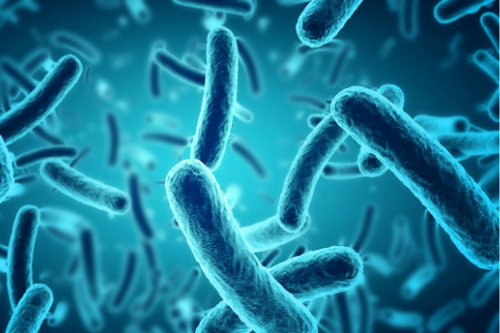Table of Contents
The roles of healthcare professionals in the industry have seen a significant surge after the COVID-19 pandemic. Doctors, nurses, and other specialized healthcare professionals are among the many that work to save millions of lives globally. It is estimated that close to 1,50,000 students graduate from MBBS programs in India. An MBBS qualification is the minimum academic requirement for a career in the healthcare industry in India. Here is all you need to about the MBBS syllabus, subjects, and career prospects.
Essential details about the MBBS program
- The full form of MBBS is – Bachelor of Medicine and a Bachelor of Surgery.
- A typical MBBS program’s duration is approximately 5.5 years. This is inclusive of a 1-year compulsory internship program.
- The program is offered full-time and students are eligible for admission on successfully clearing national-level entrance exams such as NEET.
- The National Medical Council (NMC) is expected to conduct a National Exit Test (NExT) for final year MBBS students. Those who successfully clear this exam will receive their practicing licenses, effective from 2023.
- An MBBS program provides a thorough foundation in all aspects of the medical field. Students can opt for specialization with a postgraduate program after completing MBBS.

Eligibility criteria for MBBS programs in India
To be eligible for admission to an MBBS program in India, aspirants need to meet the following criteria –
- Completion of 10+2 level of education with Physics, Biology, and Chemistry as compulsory subjects.
- A minimum score of 50% in a qualifying exam (NEET). For candidates from the SC, ST, and OBC categories, the minimum marks required is 40%.
- Candidates need to strictly be within the age group of 17 to 25 years.
- The National Eligibility cum Entrance Test or NEET is the only accepted test for admission to MBBS courses in India.
Different subjects in a typical MBBS syllabus
The MBBS syllabus is divided into a set of 3 phases, with each phase comprising of 2 to 4 semesters as explained below –
Phase I
Number of Semesters – 2
Details of Subjects – This phase consists largely of pre-clinical subjects.
1. Anatomy
The different topics under anatomy include –
- Genetics & Neuroanatomy
- Embryology
- Gross Anatomy
- Microanatomy
2. Physiology
The different topics under physiology include –
- Nutrition
- The Cardiovascular System
- Neurophysiology
- Gastrointestinal System
- Respiratory System
- General Physiology
3. Biochemistry
The different topics under biochemistry include –
- Food Assimilation & Nutrition
- Enzymes
- Biomolecules
- Cancer
- Metabolic Pathways
- Biological Cells
- Molecular Biology
Phase II
Number of Semesters – 3
Details of Subjects – This phase includes clinical and paraclinical subjects.
1. Forensic Medicine
A key topic covered under this subject is –
- Toxicology
2. Pathology
The topics covered under this subject include –
- Systematic Pathology
- General Pathology
- Practical & Laboratory Work
3. Microbiology

The topics covered under this subject are as follows –
- Bacteriology
- Laboratory Diagnosis of Infections
- Collection and Transportation of Samples
- Bacterial Identification
- Bacterial & Viral Genetics
- Virology
- Sterilization & Disinfection
- Immunodiagnosis
4. Pharmacology
The important topics that are covered in this subject include –
- The Peripheral Nervous System & Central Nervous System
- Autonomic Nervous System
- Respiratory System
- Hormones
- Cardiovascular System
- Autacoids
- Chemotherapy
Phase III
Number of Semesters – 4
Details of Subjects – This phase continues with the study of clinical subjects.
1. Medicine & Allied Subjects
The important topics covered in this subject include –
- Nutritional & Metabolic Disorders
- Poisoning
- Water, Electrolyte, & Acid-Base Imbalance
- Pain Management
- Palliative Care
- Critical Care Medicine
- Immune Response to Infections
- Medical Psychiatry
- Cardiovascular System
2. Community Medicine
Community Medicine is a subject that is concerned with the overall health system of a population. The different services provided by primary healthcare centers in India are taught in this subject.
3. Gynecology & Obstetrics
- Contraception
- Basic Sciences
- Gynecology
- Neonatology
- Obstetrics
4. Pediatrics
- Hematology
- The Gastro-Intestinal Tract
- Genetics
- Respiratory System
- Vital Statistics
- Neonatology
- Pediatric Emergencies
5. Surgery & Allied Subjects
Students are trained on several surgical techniques and numerous procedures in dedicated facilities.
Career Prospects with an MBBS degree

After the completion of a regular MBBS program, aspirants can opt for specializations that include –
- Psychiatry
- Orthopedics
- Ophthalmology
- Dermatology
- Gynecology
- Obstetrics
- Pediatrics
- General Surgery
Key Takeaways
- The MBBS qualification is the first step that needs to be taken by aspirants seeking careers in the healthcare industry.
- There are several specializations that graduates can consider after the completion of a basic MBBS program.
- Understanding the important details of the program and eligibility criteria can help candidates be better prepared and perform accordingly.
- The syllabus of a typical MBBS program is designed to give students an all-rounded understanding of the different vocations within the field.
Liked this blog? Read 10 best medical colleges in the world you should know about
FAQs
Q1. What are ‘clinical postings’?
Answer – ‘Clinical postings’ are the compulsory internship programs that students need to undertake during the course of their education.
Q2. Which authority in India prescribes the MBBS syllabus?
Answer – The National Medical Commission (NMC) is the authority responsible for regularly updating and prescribing the MBBS program syllabus.
Q3. How long is each semester in an MBBS program?
Answer – Each semester in an MBBS program roughly comprises 6 months of training.






